Home>Garden Essentials>Why Are Sunflower Seeds Good For You


Garden Essentials
Why Are Sunflower Seeds Good For You
Modified: April 22, 2024
Discover the health benefits of sunflower seeds for your garden, including their high nutrient content and ability to attract beneficial pollinators.
(Many of the links in this article redirect to a specific reviewed product. Your purchase of these products through affiliate links helps to generate commission for Storables.com, at no extra cost. Learn more)
Introduction
When it comes to healthy snacking, few options can match the nutritional powerhouse that is sunflower seeds. Not only are they incredibly delicious, but they also offer a myriad of benefits for your overall well-being. Whether you enjoy them as a convenient on-the-go snack or incorporate them into your favorite recipes, sunflower seeds are a versatile and nutrient-dense addition to any diet.
Derived from the vibrant yellow sunflower plants, these seeds have been a staple in various cuisines for centuries. Packed with essential nutrients, including healthy fats, vitamins, minerals, and antioxidants, sunflower seeds provide a wholesome boost of goodness with every bite. But what exactly makes them so good for you? Let’s explore their remarkable nutritional profile and delve into the numerous health benefits they offer.
Key Takeaways:
- Sunflower seeds are a nutritional powerhouse, offering benefits such as heart health, brain function support, immune system boost, and skin nourishment. They are versatile and easy to incorporate into your diet for overall well-being.
- With essential fatty acids, vitamins, minerals, and antioxidants, sunflower seeds aid in weight management, digestive health, and reducing inflammation. Enjoy them in moderation as a delicious and nutritious addition to your meals.
Read more: How Are Sunflower Seeds Good For You
Nutritional Profile of Sunflower Seeds
Before we dive into the health benefits, let’s take a closer look at the impressive nutritional profile of sunflower seeds. These tiny but mighty seeds are packed with essential nutrients that promote overall wellness. Here’s a breakdown of the key nutrients:
- Healthy Fats: Sunflower seeds contain predominantly healthy fats, including monounsaturated and polyunsaturated fats. These fats are beneficial for heart health and help in maintaining optimal cholesterol levels.
- Protein: Sunflower seeds are a great plant-based source of protein, making them an excellent choice for vegetarians and vegans looking to meet their protein needs.
- Fiber: Loaded with dietary fiber, sunflower seeds promote digestive health, regulate blood sugar levels, and contribute to a feeling of fullness, aiding in weight management.
- Vitamins: Sunflower seeds are rich in various vitamins, including vitamin E, which acts as a potent antioxidant, protecting cells from oxidative damage. They also contain B vitamins, such as folate, niacin, and thiamin.
- Minerals: These seeds are a good source of essential minerals like magnesium, selenium, zinc, copper, and manganese, which are involved in various bodily functions.
- Antioxidants: Sunflower seeds are packed with antioxidants, including vitamin E, selenium, and phenolic compounds, which help fight harmful free radicals and reduce the risk of chronic diseases.
With such a rich nutritional profile, sunflower seeds are a powerhouse of essential nutrients that support various bodily functions and contribute to optimal health.
Health Benefits of Sunflower Seeds
Incorporating sunflower seeds into your diet can provide a multitude of health benefits. Let’s explore some of the remarkable ways these seeds can positively impact your well-being:
- Rich in Essential Fatty Acids: Sunflower seeds are an excellent source of essential fatty acids, including omega-6 fatty acids. These fats are crucial for brain health, reducing inflammation, and supporting heart health.
- Excellent Source of Vitamins and Minerals: Sunflower seeds are packed with various vitamins and minerals that are vital for overall health. Vitamin E, for example, is an antioxidant that protects cells from damage, while minerals like magnesium and selenium support numerous bodily functions.
- High in Antioxidants: Sunflower seeds are loaded with antioxidants that help combat oxidative stress and reduce the risk of chronic diseases. The presence of vitamin E, selenium, and phenolic compounds make them potent scavengers of harmful free radicals.
- Promote Heart Health: The heart-healthy fats found in sunflower seeds, such as monounsaturated and polyunsaturated fats, can help lower cholesterol levels and reduce the risk of cardiovascular diseases.
- Support Brain Function: The omega-6 fatty acids present in sunflower seeds are essential for optimal brain function and can contribute to improving cognitive abilities and mood regulation.
- Aid in Weight Management: With their high fiber content, sunflower seeds promote feelings of fullness, helping to curb unnecessary snacking and manage weight more effectively.
- Boost Immune System: Sunflower seeds are rich in antioxidants and minerals like selenium, which play a vital role in strengthening the immune system and protecting the body against infections and diseases.
- Help Maintain Healthy Skin: Vitamin E in sunflower seeds is known for its skin-nourishing properties. It helps protect the skin from oxidative damage, keeping it moisturized and youthful.
- Enhance Digestive Health: The fiber content in sunflower seeds supports a healthy digestive system by promoting regular bowel movements and preventing constipation.
- Provide Anti-Inflammatory Effects: The presence of essential fatty acids in sunflower seeds can help reduce inflammation in the body, which is associated with several chronic diseases.
With all these amazing health benefits, it’s no wonder that sunflower seeds are considered a nutritional powerhouse that can greatly contribute to your overall well-being.
Rich in Essential Fatty Acids
Sunflower seeds are highly regarded for their impressive content of essential fatty acids. These fats play a vital role in maintaining overall health and are essential for the proper functioning of the body.
One type of essential fatty acids found in sunflower seeds is omega-6 fatty acids. These fats are known for their anti-inflammatory properties and are crucial for maintaining healthy cell function. They are also involved in regulating blood clotting, supporting immune function, and promoting proper hormone balance.
Including omega-6 fatty acids in your diet can have numerous benefits for your cardiovascular health. Research has shown that these fats can help lower LDL (bad) cholesterol levels, reduce the risk of blood clot formation, and decrease inflammation in the arteries, thereby reducing the risk of heart disease.
Furthermore, the presence of essential fatty acids in sunflower seeds is beneficial for brain health. Omega-6 fats are a major component of brain cell membranes, playing a crucial role in supporting optimal brain function and cognitive abilities. They have been linked to improved memory, concentration, and mood regulation.
It is important to note that while omega-6 fatty acids are essential for the body, maintaining a proper balance with omega-3 fatty acids is crucial. Both types of fatty acids have their own unique benefits and must be consumed in the right proportion to promote optimal health. Therefore, it is recommended to include sources of omega-3 fatty acids, such as fatty fish, flaxseeds, or chia seeds, alongside sunflower seeds for a well-rounded intake of essential fats.
When incorporating sunflower seeds into your diet, it is important to do so in moderation. While they are a healthy source of essential fatty acids, they are also calorie-dense. Therefore, be mindful of portion sizes to avoid excessive calorie intake.
Incorporating sunflower seeds into your meals and snacks is a simple and delicious way to reap the benefits of essential fatty acids. Sprinkle them on salads, add them to homemade granola or trail mix, or even blend them into a creamy sunflower seed butter for a nutrient-packed spread.
In summary, sunflower seeds are rich in essential fatty acids, particularly omega-6 fats, which are essential for cardiovascular health and brain function. Including them in your diet can contribute to overall well-being and promote a healthy and functioning body.
Excellent Source of Vitamins and Minerals
Sunflower seeds are not only delicious but also pack a powerful punch when it comes to providing essential vitamins and minerals that support overall health and well-being.
One of the standout vitamins found in sunflower seeds is vitamin E. These seeds are one of the richest dietary sources of this powerful antioxidant vitamin. Vitamin E plays a crucial role in protecting cells from oxidative damage caused by free radicals, which can contribute to premature aging and the development of chronic diseases. The antioxidant properties of vitamin E can also help support immune function and promote healthy skin.
In addition to vitamin E, sunflower seeds are also a good source of B vitamins, including folate, niacin, and thiamin. These vitamins play important roles in energy production, the synthesis of DNA and red blood cells, nerve function, and maintaining a healthy metabolism.
Sunflower seeds are also packed with essential minerals that are vital for various bodily functions. Magnesium is one such mineral found abundantly in these seeds. Magnesium is involved in over 300 biochemical reactions in the body and plays a key role in maintaining healthy bones, regulating blood pressure, supporting muscle function, and promoting a strong immune system.
Another mineral found in sunflower seeds is selenium. Selenium acts as a powerful antioxidant, helping to protect cells from oxidative damage. It also plays a crucial role in thyroid function and supports a healthy immune system.
In addition, sunflower seeds contain other essential minerals like zinc, copper, and manganese, which are necessary for optimal health. Zinc is important for immune function, wound healing, and protein synthesis, while copper is involved in the production of red blood cells and the maintenance of connective tissues. Manganese is a cofactor for many enzymes involved in metabolism and antioxidant defense.
By including sunflower seeds in your diet, you can fortify your body with a wide array of vitamins and minerals that are essential for maintaining good health. Whether you consume them as a snack, sprinkle them on top of salads or stir them into your favorite recipes, sunflower seeds offer a convenient and delicious way to boost your nutrient intake.
In summary, sunflower seeds are an excellent source of vitamins and minerals, including vitamin E, B vitamins, magnesium, selenium, zinc, copper, and manganese. Incorporating these nutrient-rich seeds into your diet can provide a natural and wholesome way to support your overall health and well-being.
Read more: Why Are Sunflower Seeds Bad For You
High in Antioxidants
Sunflower seeds are not only a delicious snack but also a potent source of antioxidants. Antioxidants are compounds that help protect the body from oxidative stress and the damage caused by harmful molecules called free radicals. By incorporating sunflower seeds into your diet, you can reap the benefits of these powerful antioxidants and support your overall health and well-being.
One of the key antioxidants found in sunflower seeds is vitamin E. Vitamin E is a fat-soluble antioxidant that neutralizes free radicals and helps protect the body’s cells from oxidative damage. This is particularly important for the health of cell membranes, including those of the skin, heart, and brain.
In addition to vitamin E, sunflower seeds also contain other antioxidants such as selenium and phenolic compounds. Selenium is a trace mineral that acts as a cofactor for various enzymes involved in antioxidant defense. It works synergistically with vitamin E to protect cells from oxidative damage. Phenolic compounds, on the other hand, are plant-based antioxidants that have been associated with a reduced risk of chronic diseases such as heart disease and certain types of cancer.
The high antioxidant content in sunflower seeds can have numerous benefits for your health. Antioxidants help reduce inflammation in the body, which is a common underlying factor in many chronic diseases, including heart disease and diabetes. They also help protect the body against oxidative damage, which is associated with aging and the development of various diseases.
Furthermore, the antioxidant properties of sunflower seeds can contribute to healthy skin. Vitamin E, in particular, helps protect the skin from damage caused by harmful UV rays and environmental pollutants. It also promotes healthy skin cell turnover, giving your skin a radiant and youthful appearance.
Adding sunflower seeds to your diet not only provides a delicious and convenient snack but also gives you a natural and nutritious way to boost your antioxidant intake. Enjoy them on their own, sprinkle them on salads or yogurt, or incorporate them into baked goods for a delightful crunch and an antioxidant-rich treat.
In summary, sunflower seeds are high in antioxidants, such as vitamin E, selenium, and phenolic compounds. Including these antioxidant-rich seeds in your diet can help protect your body from oxidative stress, reduce inflammation, and support healthy skin.
Promote Heart Health
Sunflower seeds are not only a tasty snack but also have numerous benefits for heart health. Their nutrient-rich profile, particularly their healthy fat content, makes them a valuable addition to a heart-healthy diet.
One of the key factors that contribute to the heart-protective effects of sunflower seeds is their healthy fat content. These seeds are a rich source of monounsaturated and polyunsaturated fats, including omega-6 fatty acids. These fats have been shown to help lower levels of LDL (bad) cholesterol and triglycerides, both of which are risk factors for heart disease.
The monounsaturated and polyunsaturated fats in sunflower seeds can also help raise levels of HDL (good) cholesterol. HDL cholesterol helps remove LDL cholesterol from the arteries, preventing the build-up of plaque and reducing the risk of heart disease.
In addition to their favorable fat profile, sunflower seeds also contain phytosterols. Phytosterols are plant compounds that have a structure similar to cholesterol and can help lower LDL cholesterol levels. By inhibiting the absorption of dietary cholesterol, phytosterols contribute to maintaining healthy blood lipid levels and reducing the risk of cardiovascular diseases.
Moreover, the high antioxidant content in sunflower seeds, particularly vitamin E, helps combat oxidative stress and inflammation, which are key contributors to heart disease. Antioxidants protect the delicate lining of the arteries, preventing the formation of plaque and reducing the risk of atherosclerosis.
Incorporating sunflower seeds into your diet can be as simple as enjoying them as a snack or adding them to your favorite dishes. Sprinkle them on top of salads, blend them into smoothies, or use them as a topping for roasted vegetables. However you choose to incorporate them, sunflower seeds offer a delicious and heart-healthy addition to your meals.
It is important to note that while sunflower seeds can contribute to heart health, moderation is key. They are calorie-dense, so be mindful of portion sizes to avoid excessive calorie intake.
In summary, sunflower seeds promote heart health by providing a favorable fat profile, containing phytosterols to lower LDL cholesterol, and possessing antioxidant properties to combat oxidative stress and inflammation. Including these nutrient-packed seeds in your diet can help support a healthy heart and reduce the risk of cardiovascular diseases.
Sunflower seeds are a good source of healthy fats, protein, fiber, and essential vitamins and minerals. They can help support heart health, improve digestion, and provide a good source of energy. Just be mindful of portion sizes, as they are calorie-dense.
Support Brain Function
Sunflower seeds are not only a delicious and nutritious snack but also an excellent food choice for supporting optimal brain function. Packed with essential nutrients, they offer a range of benefits that can enhance cognitive abilities and promote overall brain health.
One of the key components of sunflower seeds that contribute to brain health is their content of essential fatty acids, particularly omega-6 fatty acids. These fatty acids are crucial for the development and maintenance of brain cells and the overall functioning of the central nervous system.
Omega-6 fatty acids, such as linoleic acid, found in sunflower seeds, play a vital role in the structure and function of cell membranes in the brain. They help maintain the flexibility and integrity of the neuronal membranes, which is essential for the efficient transmission of signals between brain cells.
Furthermore, these essential fatty acids have been linked to improved cognitive function, including enhanced memory and learning abilities. They also contribute to mood regulation by supporting the production of neurotransmitters, such as serotonin and dopamine, which play a key role in maintaining a positive mood and overall mental well-being.
In addition to omega-6 fatty acids, sunflower seeds contain other brain-boosting nutrients. They are a rich source of vitamin E, a powerful antioxidant that protects brain cells from oxidative damage caused by free radicals. Vitamin E has been associated with a reduced risk of cognitive decline and neurodegenerative diseases, such as Alzheimer’s disease.
Sunflower seeds also contain minerals like magnesium and copper, which are essential for optimal brain function. Magnesium plays a vital role in neurotransmission and supports cognitive processes, such as learning and memory. Copper, on the other hand, is involved in the synthesis of neurotransmitters and the maintenance of the connective tissues in the brain.
By incorporating sunflower seeds into your diet, you can provide your brain with a rich array of nutrients that support cognitive function, memory, and mood regulation. Enjoy a handful of sunflower seeds as a snack, sprinkle them on top of yogurt or oatmeal, or use them in homemade energy bars or granola for a brain-boosting treat.
To maximize the benefits for brain health, it is important to maintain a balanced diet that includes a variety of nutrient-rich foods, along with regular physical exercise and mental stimulation.
In summary, sunflower seeds contain essential fatty acids, vitamins, and minerals that support optimal brain function. Including these nutrient-packed seeds in your diet can enhance cognitive abilities, improve memory, and promote overall brain health.
Aid in Weight Management
If you’re looking to maintain a healthy weight or shed a few pounds, incorporating sunflower seeds into your diet can be a smart choice. These nutrient-dense seeds offer several benefits that can support your weight management goals.
One of the primary reasons sunflower seeds can aid in weight management is their high fiber content. Fiber is essential for maintaining a healthy digestive system and promoting feelings of fullness. When you consume foods rich in fiber, like sunflower seeds, they take longer to digest, keeping you satisfied and reducing the likelihood of overeating or snacking on unhealthy options.
In addition to promoting feelings of fullness, the fiber in sunflower seeds also helps regulate blood sugar levels. By slowing down the absorption of glucose from the digestive system, fiber can prevent spikes and drops in blood sugar, which can lead to increased cravings and overeating.
Despite being relatively small in size, sunflower seeds are packed with nutrients, including protein. Protein is known for its satiating effect and its role in muscle growth and repair. By incorporating sunflower seeds into your meals or snacks, you can boost your protein intake, helping you feel fuller for longer and supporting muscle maintenance.
Furthermore, sunflower seeds are a nutritious and calorie-dense food. While they provide essential nutrients, vitamins, and minerals, it’s important to enjoy them in moderation to avoid excessive calorie intake. Be mindful of portion sizes, especially if your goal is weight loss or weight management.
Enjoy sunflower seeds as a snack on their own, sprinkle them on top of salads or yogurt, or incorporate them into baked goods and homemade granola for added crunch and flavor. They can also be used to create a delicious and nutritious sunflower seed butter, a healthier alternative to traditional nut butters.
Remember, while sunflower seeds can support weight management, they should be part of a well-balanced diet that includes a variety of nutrient-rich foods and regular physical activity. Consulting with a healthcare professional or a registered dietitian can help you personalize your diet and ensure it aligns with your specific goals and needs.
In summary, sunflower seeds can aid in weight management by providing a feeling of fullness, regulating blood sugar levels, and offering a nutrient-dense snack option. By incorporating them into a well-rounded diet, you can enjoy their numerous benefits while working towards your weight management goals.
Read more: Why Are Sunflower Seeds Addictive
Boost Immune System
A strong and healthy immune system is crucial for defending your body against harmful pathogens and reducing the risk of illness. Sunflower seeds can play a role in boosting your immune system due to their rich nutritional content and antioxidant properties.
One of the key nutrients found in sunflower seeds that contributes to immune function is selenium. Selenium is an essential trace mineral that supports the production and function of immune cells. It acts as an antioxidant, protecting the immune cells from oxidative damage and helping to regulate immune responses.
In addition to selenium, sunflower seeds also contain other immune-supporting nutrients, including vitamin E and zinc. Vitamin E is a potent antioxidant that helps protect immune cells from oxidative stress. Zinc is involved in various aspects of immune function, such as the production and activity of immune cells and the maintenance of the skin and mucosal barriers, which act as the first line of defense against pathogens.
Sunflower seeds also provide an array of antioxidants, including phenolic compounds and vitamin E. These antioxidants help combat harmful free radicals and reduce inflammation, both of which can weaken the immune system. By reducing oxidative stress and inflammation, the antioxidants in sunflower seeds keep your immune system strong and functioning optimally.
Furthermore, sunflower seeds are rich in protein, which is essential for building and repairing tissues, including immune cells. Protein helps support the production and function of antibodies, which are vital for targeting and neutralizing pathogens.
Incorporating sunflower seeds into your meals and snacks is an easy and delicious way to boost your immune system. Sprinkle them on salads, blend them into smoothies, or use them as a topping for soups or roasted vegetables.
While sunflower seeds can contribute to a healthy immune system, it’s important to remember that overall immune function is influenced by various factors, including lifestyle, diet, sleep, and stress management. Maintaining a well-rounded lifestyle and adopting healthy habits, alongside incorporating nutritious foods like sunflower seeds, can help support a robust immune system.
It’s worth noting that if you have any specific health concerns or immune system conditions, it’s important to consult with a healthcare professional for tailored guidance.
In summary, sunflower seeds can boost the immune system due to their selenium, vitamin E, zinc, protein, and antioxidant content. Including these nutrient-packed seeds in your diet can help support immune function and keep your body resilient against potential threats.
Help Maintain Healthy Skin
Your skin is the largest organ of your body and plays a crucial role in protecting you from external elements. Sunflower seeds can contribute to maintaining healthy skin due to their rich nutritional profile and antioxidant properties.
One of the key nutrients found in sunflower seeds that promotes skin health is vitamin E. Vitamin E is a powerful antioxidant that helps protect the skin cells from oxidative damage caused by free radicals. It also plays a role in maintaining the integrity and structure of cell membranes, contributing to healthy, youthful-looking skin.
The antioxidant properties of vitamin E in sunflower seeds can also help protect the skin against the harmful effects of UV radiation from the sun. Exposure to UV rays can lead to premature aging, wrinkles, and an increased risk of skin cancer. By incorporating sunflower seeds into your diet, you can provide your body with a natural source of protection against UV-induced damage.
Furthermore, the essential fatty acids present in sunflower seeds can support skin health. These fatty acids, including omega-6 fatty acids, help maintain the skin’s natural barrier function, keeping it moisturized and preventing water loss. This can contribute to a more supple and hydrated complexion.
In addition, sunflower seeds contain minerals like zinc and selenium that are vital for overall skin health. Zinc plays a crucial role in cell growth and repair, helping to heal wounds and maintain the integrity of the skin. Selenium acts as an antioxidant, protecting the skin cells from damage and promoting a healthy complexion.
Consuming sunflower seeds as part of a balanced diet can provide the necessary nutrients to support your skin’s health from the inside out. Additionally, you can even incorporate sunflower seed oil topically as a moisturizer or as a massage oil to further enhance its benefits for your skin.
Remember, while sunflower seeds can be beneficial for your skin, it’s important to maintain a holistic approach to skincare. This includes protecting your skin from excessive sun exposure, practicing good hygiene, staying hydrated, and using suitable skincare products tailored to your skin type.
In summary, sunflower seeds support healthy skin due to their vitamin E and essential fatty acid content, along with minerals like zinc and selenium. Including these nutrient-rich seeds in your diet can nourish your skin from within, providing antioxidants and essential nutrients that contribute to a radiant and youthful complexion.
Enhance Digestive Health
A healthy digestive system is essential for overall well-being, as it ensures proper nutrient absorption, waste elimination, and optimal gut function. Sunflower seeds can contribute to enhancing digestive health due to their high fiber content and nutrient profile.
Fiber is a crucial component of a healthy diet and plays a vital role in digestive health. Sunflower seeds are rich in dietary fiber, both soluble and insoluble. Soluble fiber helps soften and add bulk to the stool, facilitating regular bowel movements and preventing constipation. Insoluble fiber acts as a natural laxative, promoting the smooth movement of food through the digestive tract.
Including fiber-rich foods like sunflower seeds in your diet can help support a healthy digestive system. Fiber not only helps alleviate constipation but can also help regulate bowel movements, prevent digestive disorders, and maintain a healthy gut microbiome.
The gut microbiome, which consists of trillions of microorganisms, plays a vital role in digestion and overall health. The fiber in sunflower seeds acts as a prebiotic, providing nourishment for beneficial gut bacteria. This can help promote a diverse and balanced gut microbiome, which is associated with improved digestion, nutrient absorption, and a strengthened immune system.
In addition to fiber, sunflower seeds also provide essential nutrients that contribute to a healthy digestive system. For example, magnesium, found in abundance in these seeds, helps relax the muscles of the gastrointestinal tract, promoting regular bowel movements and reducing the risk of gastrointestinal disorders like irritable bowel syndrome (IBS).
When incorporating sunflower seeds into your diet for digestive health, it’s important to gradually increase your intake and drink plenty of water. This can help prevent discomfort and ensure that the fiber from the seeds can effectively aid digestion.
Enjoy sunflower seeds as a topping for salads, blend them into smoothies, or use them in homemade trail mix or baked goods for a fiber-rich and nutritious treat. However, be mindful of portion sizes, as sunflower seeds are calorie-dense.
It’s worth noting that if you have any specific digestive concerns or conditions, it’s essential to consult with a healthcare professional for personalized advice.
In summary, sunflower seeds enhance digestive health due to their high fiber content, which aids in regular bowel movements and supports a healthy gut microbiome. Including these nutrient-packed seeds in your diet can help promote a well-functioning digestive system and contribute to overall digestive wellness.
Provide Anti-Inflammatory Effects
Inflammation is a natural response of the body to protect itself from injury or infection. However, chronic inflammation can lead to various health issues, including cardiovascular disease, diabetes, and chronic pain conditions. Sunflower seeds can provide anti-inflammatory effects and contribute to overall well-being.
One of the key factors that contribute to the anti-inflammatory properties of sunflower seeds is their high content of essential fatty acids, particularly omega-6 fatty acids. These fatty acids play a crucial role in the body’s inflammatory response, helping to regulate the production of inflammatory molecules called cytokines. By maintaining a balanced ratio of omega-6 fatty acids to omega-3 fatty acids, you can promote a healthy inflammatory response.
Additionally, sunflower seeds contain antioxidant compounds such as vitamin E and phenolic compounds that contribute to their anti-inflammatory effects. These antioxidants work by neutralizing free radicals and reducing oxidative stress, which can trigger inflammation in the body. By reducing inflammation, antioxidants in sunflower seeds can help support optimal health and reduce the risk of chronic diseases associated with inflammation.
It’s important to note that while omega-6 fatty acids and antioxidants in sunflower seeds can provide anti-inflammatory effects, a well-rounded diet that includes a variety of anti-inflammatory foods is key. Other foods with anti-inflammatory properties include fatty fish rich in omega-3 fatty acids, leafy green vegetables, berries, nuts, and spices like turmeric and ginger.
Incorporating sunflower seeds into your diet is a simple way to benefit from their anti-inflammatory properties. Enjoy them as a snack on their own, sprinkle them on salads or roasted vegetables, or incorporate them into homemade energy bars or granola. However, be mindful of portion sizes, as sunflower seeds are calorie-dense.
If you have specific inflammatory conditions or concerns, it’s important to consult with a healthcare professional or registered dietitian for personalized guidance on managing inflammation through diet.
In summary, sunflower seeds provide anti-inflammatory effects due to their content of essential fatty acids and antioxidants. Including these nutrient-dense seeds in your diet can help support a healthy inflammatory response and reduce the risk of chronic diseases associated with inflammation.
Read more: How Do You Eat Sunflower Seeds
Conclusion
Sunflower seeds are more than just a tasty snack – they are a nutritional powerhouse that offers a wide range of health benefits. From supporting heart health to enhancing brain function, boosting the immune system to promoting healthy skin, sunflower seeds have a lot to offer. Their impressive nutritional profile, including essential fatty acids, vitamins, minerals, antioxidants, and fiber, makes them a valuable addition to any diet.
When it comes to maintaining overall health, sunflower seeds can play a significant role. Their essential fatty acids, such as omega-6 fats, contribute to heart health and brain function, supporting cognitive abilities and mood regulation. The abundance of vitamins and minerals in sunflower seeds, including vitamin E, selenium, and zinc, help promote optimal body function and immune system support. Their high antioxidant content combats harmful free radicals and reduces the risk of chronic diseases. Additionally, the fiber in sunflower seeds aids in weight management and digestive health, while their anti-inflammatory properties contribute to overall wellness.
Incorporating sunflower seeds into your diet is easy and versatile. Enjoy them as a snack, sprinkle them on salads or yogurt, blend them into smoothies, or use them in baking and cooking. However, it is important to consume them in moderation due to their calorie density.
While sunflower seeds offer numerous benefits, it is important to remember that they are just one component of a healthy lifestyle. A well-rounded diet, regular physical activity, adequate sleep, and stress management are all essential for overall well-being.
Whether you’re looking to improve heart health, support brain function, boost your immune system, maintain healthy skin, enhance digestive health, or reduce inflammation, sunflower seeds can be a valuable ally. So, why not add these nutrient-packed seeds to your daily routine and reap the many benefits they have to offer?
Frequently Asked Questions about Why Are Sunflower Seeds Good For You
Was this page helpful?
At Storables.com, we guarantee accurate and reliable information. Our content, validated by Expert Board Contributors, is crafted following stringent Editorial Policies. We're committed to providing you with well-researched, expert-backed insights for all your informational needs.


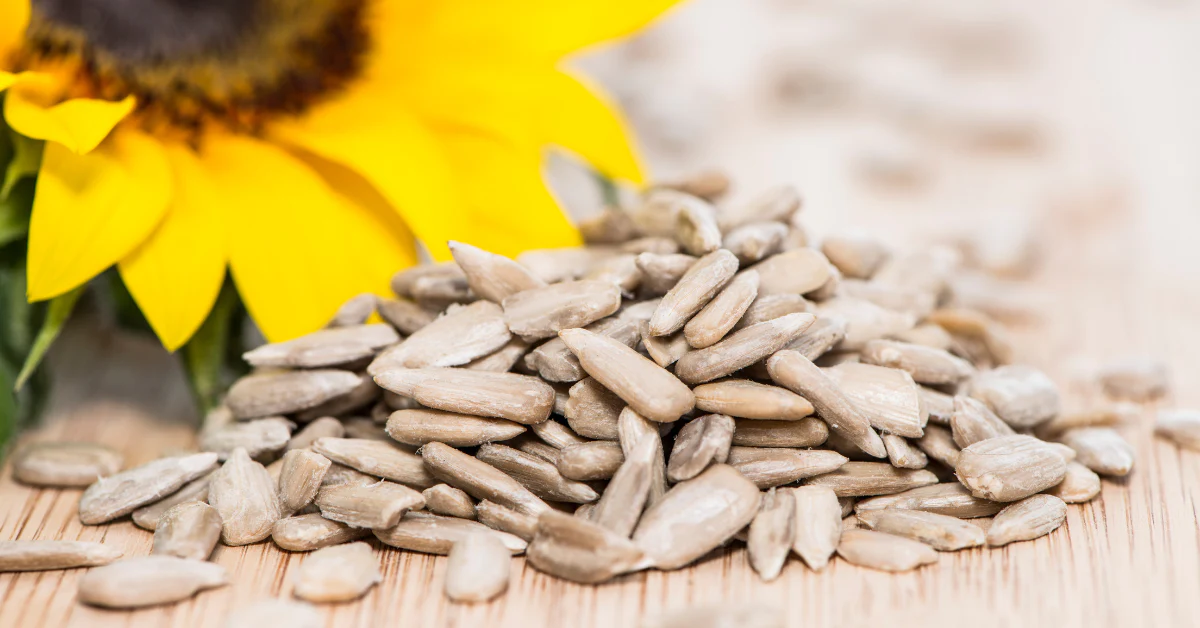

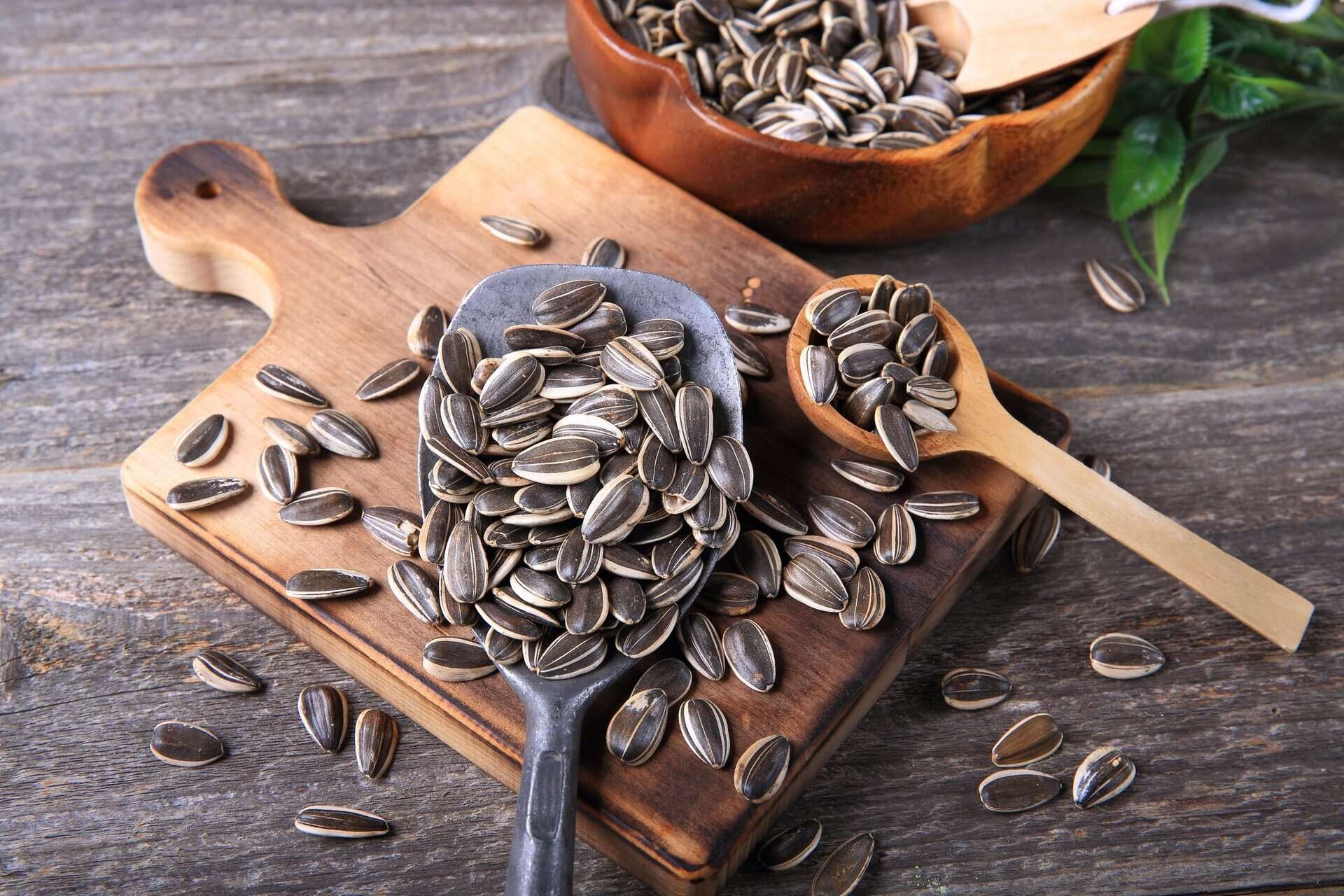
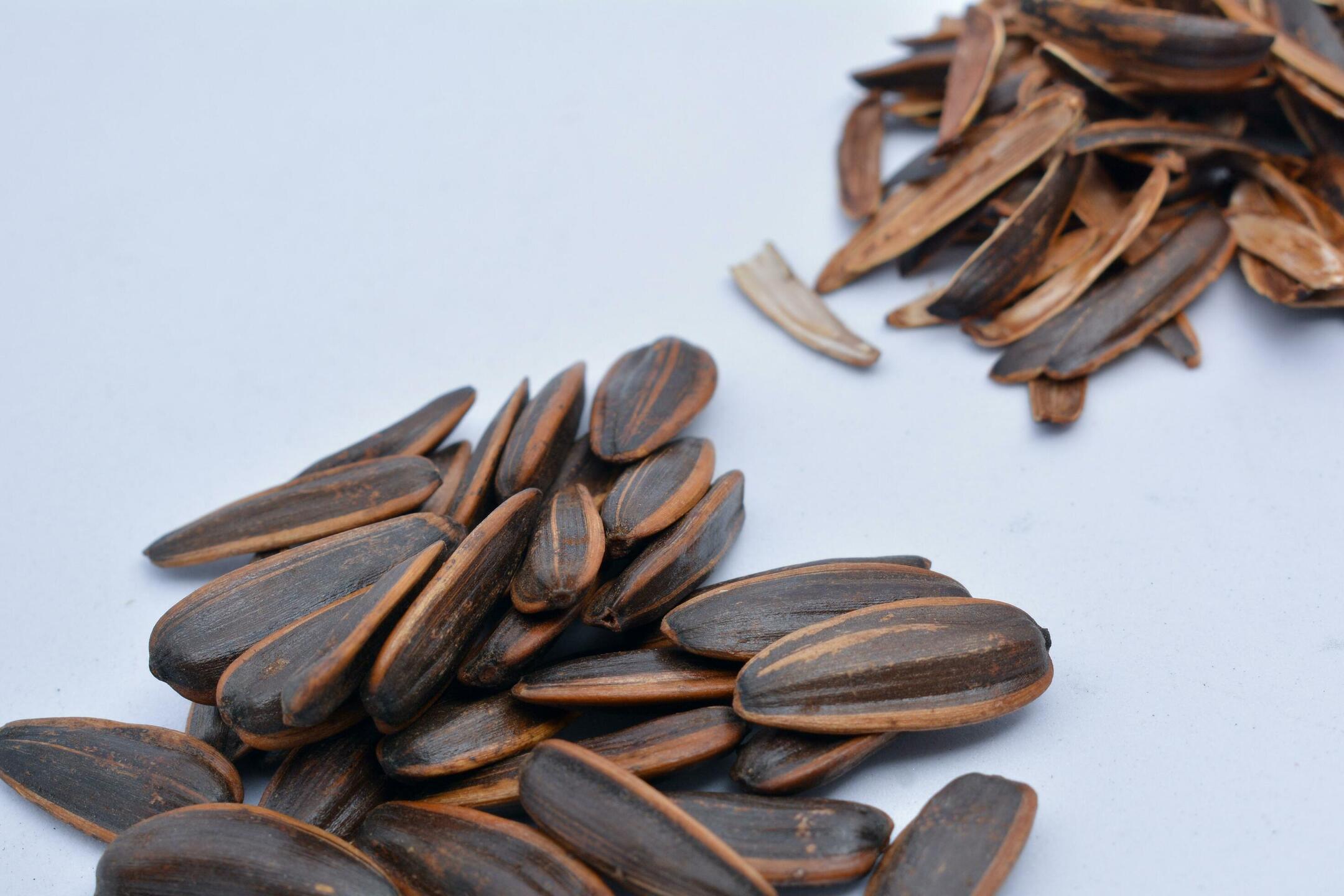

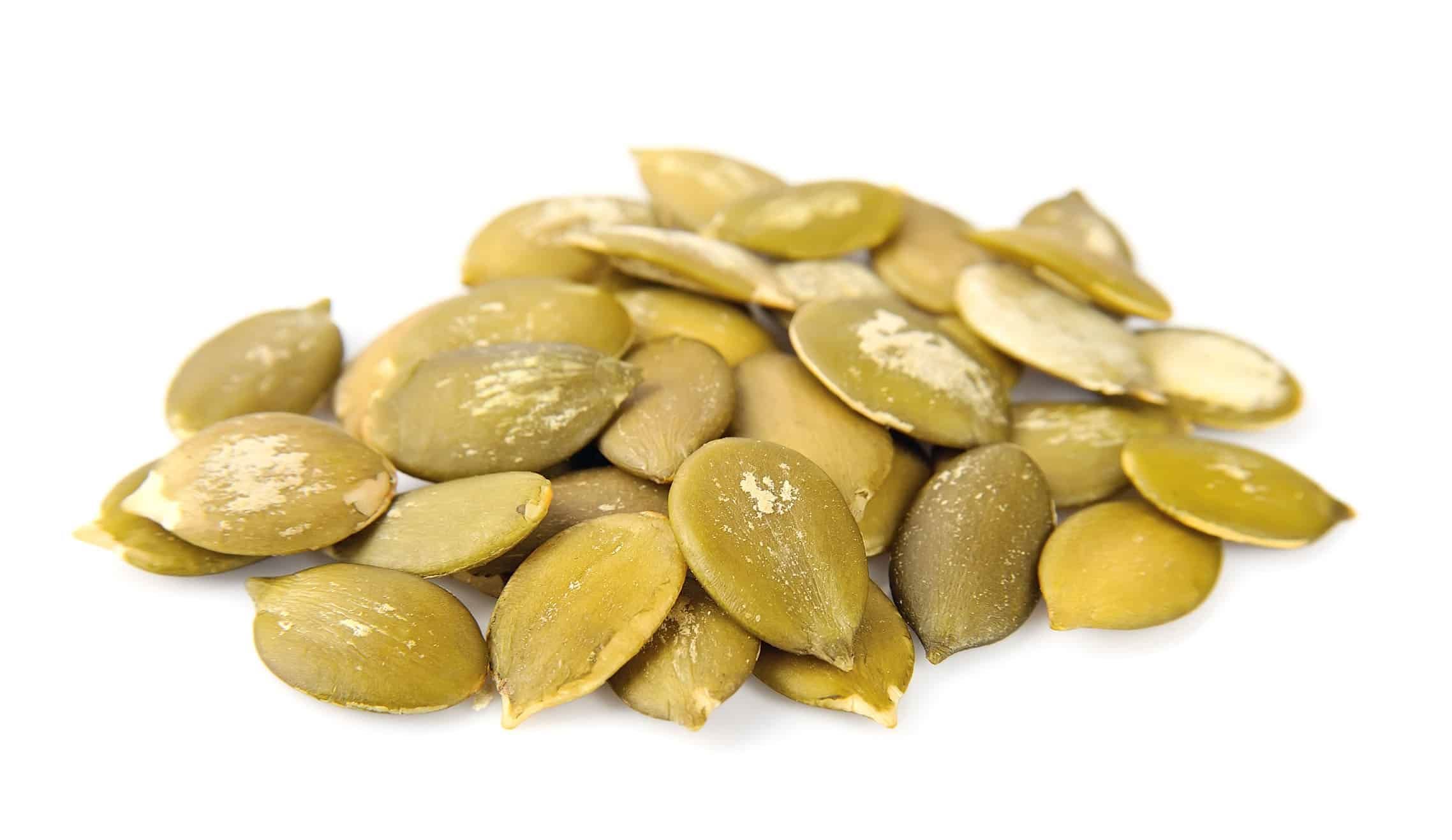



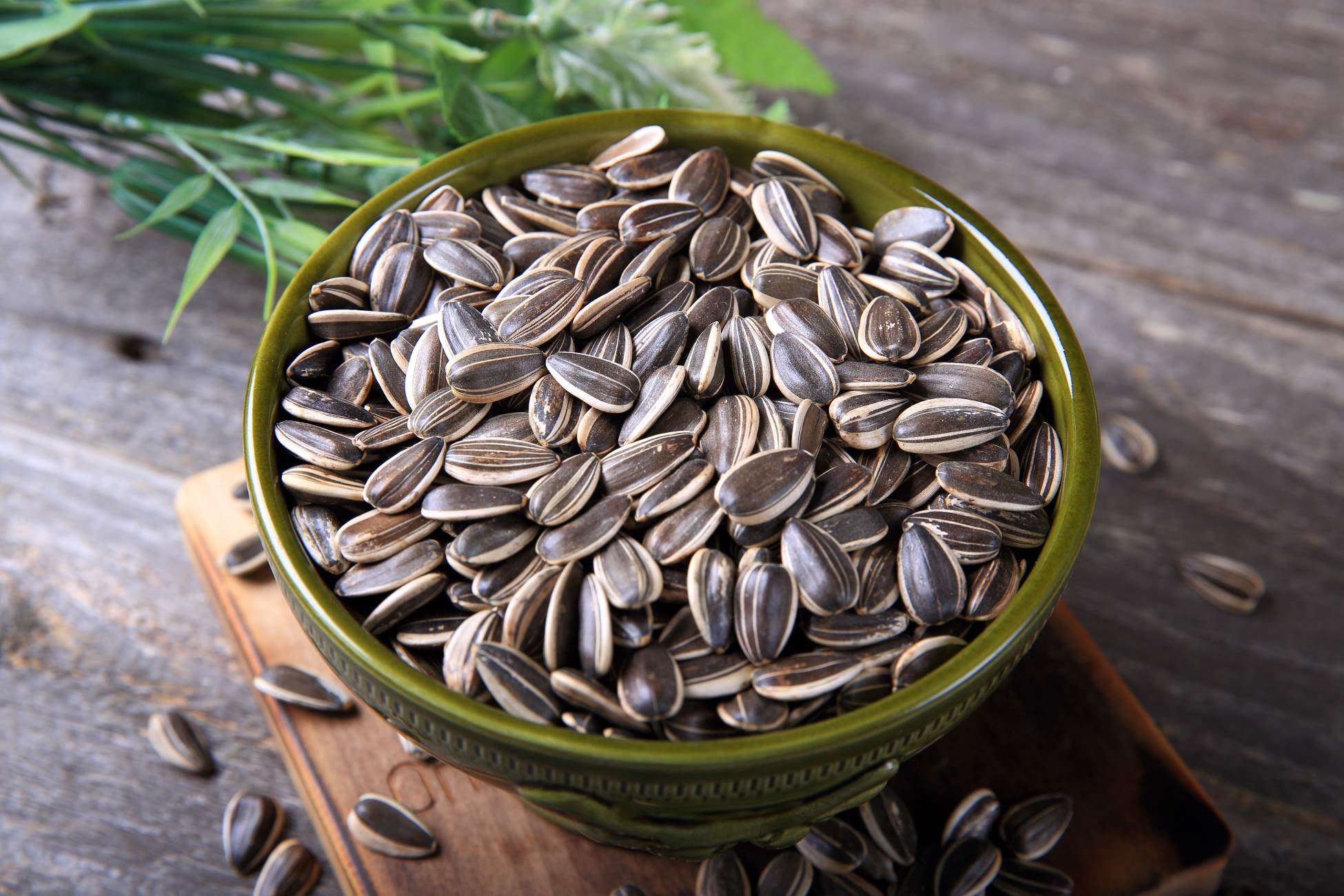

0 thoughts on “Why Are Sunflower Seeds Good For You”